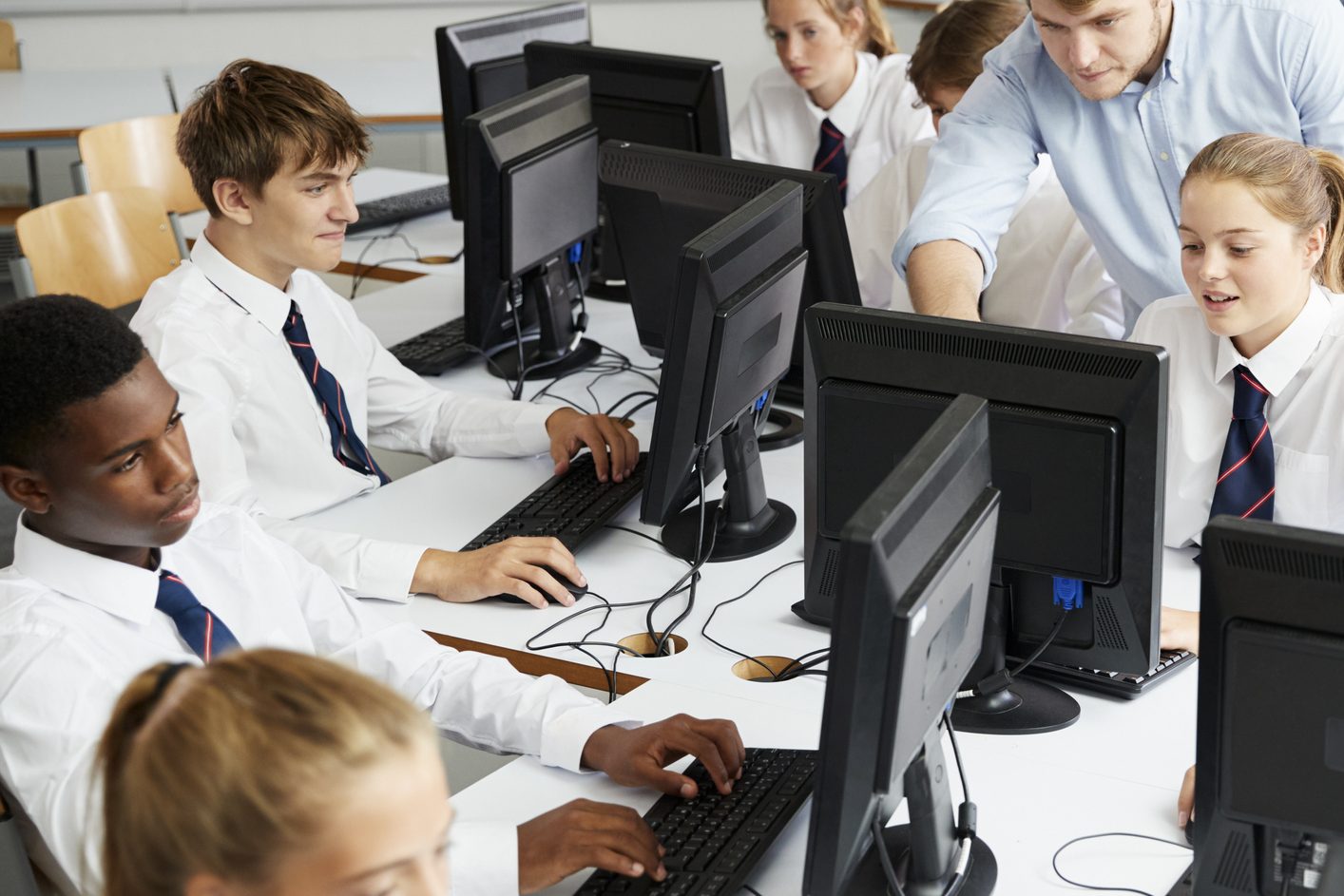
We were delighted recently to participate in the Languages Connect Summit in Dublin, organised by the Post-Primary Languages Ireland (PPLI).
From listening to online content in the target language to recording students speaking, digital technologies provide significant opportunities to enhance learning in the MFL classroom.
Here are just some of the ideas that were shared with us at the conference by MFL teachers:
- Padlet for collaborative vocabulary banks
- Writing emails in the target language
- Using the Superhero app to create stories
- Gaming apps in the target language to increase vocabulary
- Students create a dialogue (incl cloze test) using Chat GBT based on a situation they have been studying. Teacher checks, students share with peers and each group acts out dialogue in class.
- Linking Computer Science to language by using coding and microbits to practically apply language
- Using additional home languages on Powerpoint presentations to support learning
- Airplaying student interactions from an iPad onto the whiteboard for peer assessment
- Audio homework, using songs and dubbing
- Creating a TikTok video of their morning routine in the target language, overlayed with music and voiceover
- Getting students to audio record themselves doing role play and peer assess
- Use Onenote Class Notebooks – students record themselves or create presentation and keep in their personal portfolio
- A school podcast. Learners present and interact in the target language, and present the school positively to prospective partner schools in the target language country
- Interactive whiteboard, Youtube videos, listen to news
- Storyboards, Powerpoint presentations, video apps and dictation apps
- Create an audio recording describing your house, garden or desk.
- Online music and songs in the target language
- Use Plotagon to create virtual characters and give them a voice in Spanish.
- Podcast interview about one of the Junior Cycle topics
- Create a Google slide and insert an AI generated image of a café. Insert hidden links (represented by dots). When students click on these hidden links within the café it brings them to self directed and auto evaluative websites for fun ways to improve various parts of their language skills.
- Set up a school podcast and newspaper with MFL sections
- Students create their own online flashcard sets using Quizlet or a Quiz to revise
- Film making in the target language
- Vocaroo for oral practice
- Creating Vlogs in German
- Voki – students create their own avatar and record their voice. Use with 1st years to make a basic presentation about themselves. The rest of the class guesses who is who.
- Onenote to record video and ‘phone conversations’ and Aussprache
- Use iMovie to record, edit and publish an MFL lip sync video, students learn a song that has both Spanish and French in it, then lip sync the lyrics for the camera. The audio of the song is added into the video and synced to be in time with their miming.
- Use the app “texting stories” on my phone to type text messages in French and Irish and students watch these messages be typed in class on the video played on the whiteboard
- Create videos where students describe their school or local area on camera. The video is edited in Edpuzzle and comprehension questions are inputted where students answer on what they are hearing.
- Charlala, which allows students to draw what they hear you describing.
Summary of tools and apps mentioned by teachers:
- Duolingo
- Prezi
- Kahoot
- Genially
- Picolage
- Powerpoint
- Google Slides
- Charlala
- iMovie
- Onenote
- Gaming apps in target language
- Voki
- Microsoft Forms
- Edpuzzle
- Vocaroo
- Podcasting tools
- Padlet
- Flipgrid
- Quizlet
- Wordwall
- Conjuguemos
- Superhero app
- TikTok
- Blooket
- Plotagon
- ChatGPT
- YouTube
School’s Acceptable Use Policy
When using online tools in the classroom it must that this use is in line with the school’s Acceptable Use Policy (AUP). The AUP addresses the safe, acceptable and responsible use of the internet and digital technologies in the school. For more information on the school AUP, including a handy AUP generator tool visit https://www.webwise.ie/aup-2/
Coming Soon!
A new course on using digital technologies in the MFL classroom will be available in 2024. In the meantime, check out our other courses which are also relevant for MFL teachers on the online courses section of our website.


